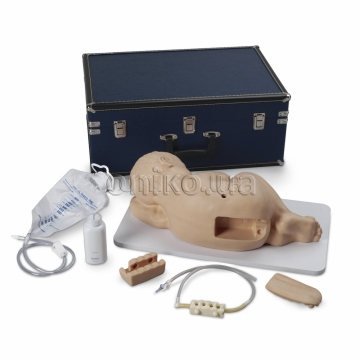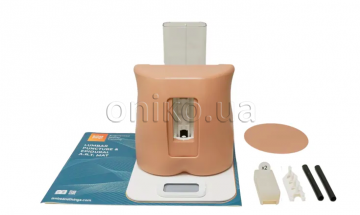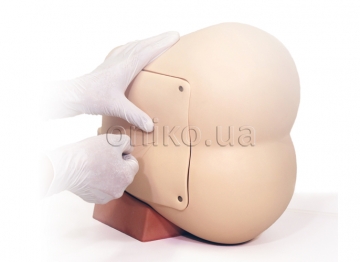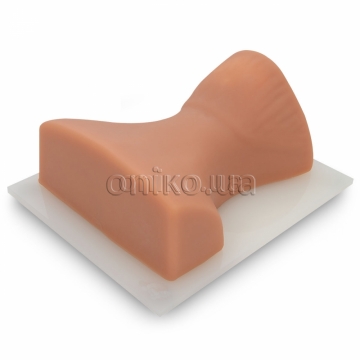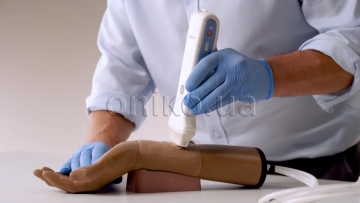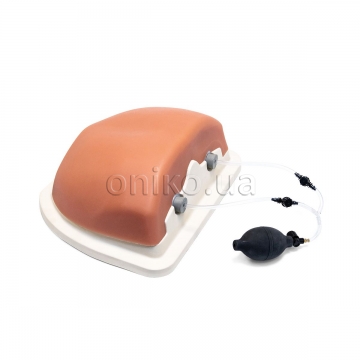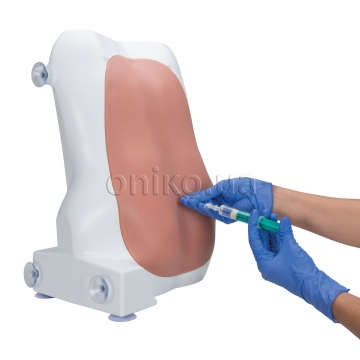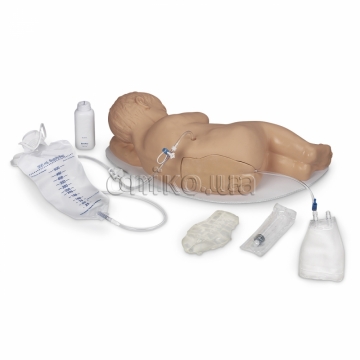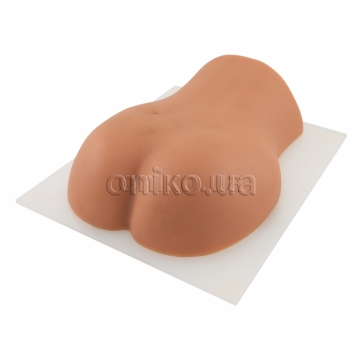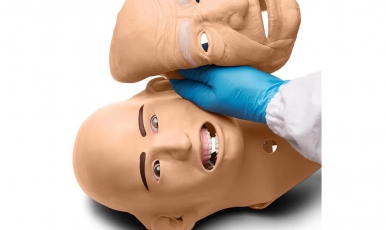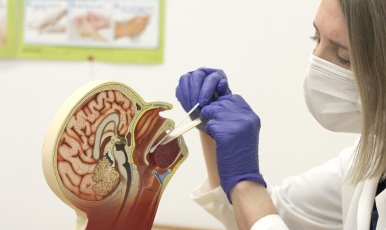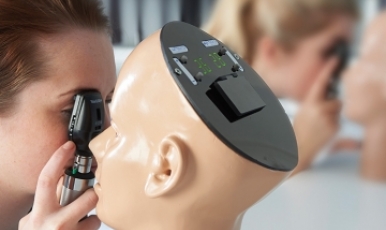Pediatric Lumbar Puncture Simulator
Infants commonly require lumbar puncture as a diagnostic procedure used to collect a sample of cerebrospinal fluid (CSF), measure cerebrospinal fluid pressure, or to inject medications intrathecally. The Pediatric Lumbar Puncture Simulator represents a 10-12 month old infant placed in a left lateral decubitus position with the neck and knees flexed, approximating the necessary fetal position. The embedded iliac crest offers exceptional realism, while the removable spine, spinal canal and skin pad make training simple and hassle free. Lumbar puncture may be performed in the L3-L4, L4-L5, or L5-S1 spaces. The correct site can be located by palpating the iliac crest and spine. A small give will be felt as the spinal needle is advanced slowly into the proper space. Fluid will flow when the needle is in proper position. Students will appreciate the opportunity to practice this delicate but commonly performed procedure on a simulator that is both appealing and anatomically accurate.
Benefits
• Targets key skills specific to pediatric lumbar puncture procedures
• Palpation of landmarks
• Skin preparation
• Needle positioning and insertion
• Cerebrospinal fluid collection
• Measure cerebrospinal fluid pressure
• Intrathecal injections
Features
• Anatomically correct and palpable
• Correct body positioning
• Lumbar pad is easy to replace
• Realistic resistance
• Simulated CSF flows with successful puncture

